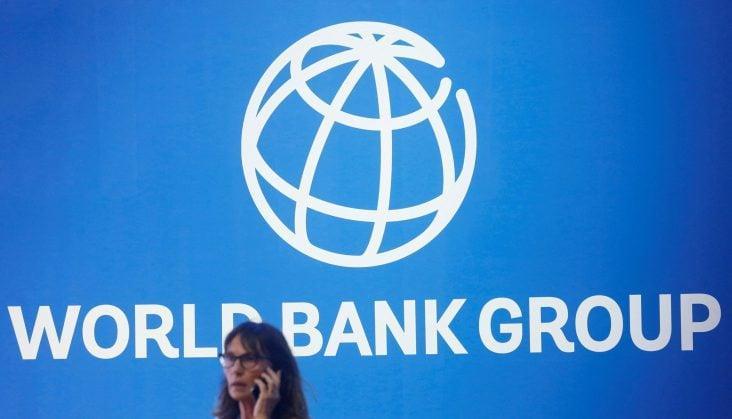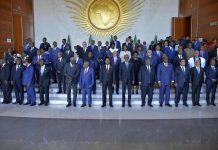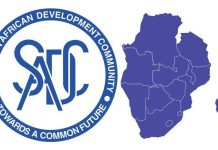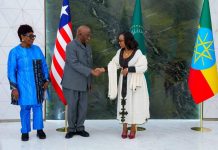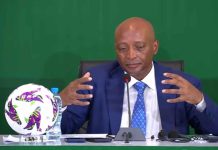Africa-Press – Lesotho. A lack of low-cost finance is holding African countries back from meeting immediate development needs and investing in the future. But the upcoming 2023 World Bank African Caucus (6-8 July in Sal, Cabo Verde) meeting is an opportunity for African countries to lay out an agenda for how World Bank reforms could address this challenge.
Africa’s clout and strategic importance are growing in an era of geopolitical competition. With a vibrant, youthful population, by 2050, Africa will have added 796 million people to the global workforce.
The African Continental Free Trade Area (AfCFTA) aims at creating a single, continent-wide market that unites 54 countries with a combined population of 1.3 billion and GDP of $3.4trn.
It has 60% of the world’s best solar potential, 71% global cobalt production, and 77% of platinum, all of which are critical minerals for the energy transition.
The Congo Basin is the largest carbon sink in the world and Kenya’s Great Rift Valley is the best location on the planet for carbon capture and storage.
Despite its immense potential, Africa’s growth is expected to slow down to 3.2% in 2023. With low CO2 emissions, Africa bears the brunt of the effects of climate change.
Without adequate adaptation, up to 13.5 million people across the G5 Sahel could fall into poverty by 2050. Madagascar, for instance, has been impacted by five successive storms and tropical cyclones, with direct costs estimated to be more than 4.8% of its GDP.
More than 600 million people in Africa, almost double the size of the US population, have still no access to electricity. Trillions of dollars will be needed to meet the aspirations of Africa’s population, transform its economies, and transition its energy systems.
The UN Secretary-General has called for a surge in financing of at least $500bn per year to achieve the Sustainable Development Goals. If this scale of financing is released, it will address concerns that climate action will come at the expense of development outcomes.
The World Bank was created to provide this kind of low-cost finance at scale, however, changes need to be made to reach the speed and scale required. The bank is already in the process of reform through an “evolution roadmap” proposed by its shareholders in 2022.
African countries should play an active role in shaping it. First, the balance sheet of the International Bank for Reconstruction and Development (IBRD) – the World Bank’s global development cooperative – needs to be stretched in order to increase lending.
In April, the bank announced that it would boost lending capacity by $50bn over the next decade. This is only the first step. More resources are needed in quality and scale in the trillions, which will necessitate additional steps to get the most out of IBRD’s balance sheet.
It is too premature to rule out a capital increase. Second, the World Bank’s concessional window that serves as a lifeline for African countries, the International Development Association (IDA), must be increased by an order of magnitude.
In fiscal year 2022, Africa received 73% of total IDA commitments ($27.5bn out of a total $37.7bn). This is one of the ‘best buys’ in development finance.
As donor countries took unprecedented measures to save their banks, protect themselves from the Covid-19 pandemic and support Ukraine, their contributions to IDA have decreased in real terms.
This has to change. Donors must bridge the immediate shortfall (the so-called “cliff”) that IDA countries will face over the next two fiscal years, as well as significantly increase IDA’s long-term resources.
African finance ministers have called for a tripling of IDA by 2030. Third, a greater focus on addressing fragility and boosting climate financing is urgently needed.
Developed countries must deliver on their existing commitments consistently and predictably, including the collective goal of mobilising $100bn per year to support climate action in developing countries and financing and operationalising the Loss and Damage Fund.
By laying out a clear and consistent message, African countries can shape the agenda for a reformed World Bank, ahead of the important decision-making moments at the G20, and the IMF/World Bank annual meetings in Marrakech in October.
If successful, these reforms could help transform African economies and address development challenges and climate change. With the right level of resources, these two issues become two sides of the same coin.
For More News And Analysis About Lesotho Follow Africa-Press

